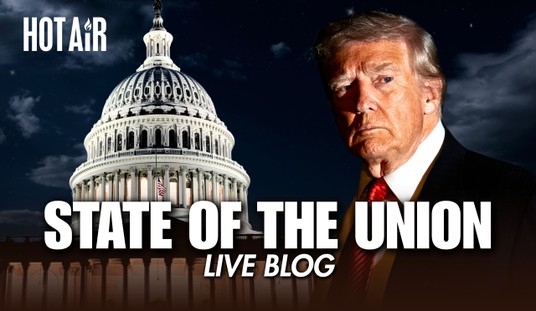The first stage in any surrender is envoys from the retreating army seeking a meeting with the advancing force, to “talk.”
Dude, it’s happening.
Sen. Susan Collins (R-Maine) said she agreed to meet with Garland after the White House reached out, but said such a meeting will take place after the Senate returns from its two-week recess in April…
“I don’t see the majority leader changing his mind on this issue. He believes strongly that this should be a decision made by the next president. I don’t agree with that decision, but I respect it,” she said. “The irony, however, will be if the next president, whoever that may be, ends up nominating a person who is far more liberal than Judge Garland, who is considered to be a centrist.”
Sen. Jeff Flake (R-Ariz.) also told reporters that he would meet with Garland, saying, “I meet with people. That’s what I do.”…
Sens. Mark Kirk (R-Ill.), Rob Portman (R-Ohio) and Kelly Ayotte (R-N.H.) each said Wednesday they were open to meeting with Garland.
Jim Inhofe and Thad Cochran are the other two. As chance would have it, seven is precisely half the number that McConnell would need to break a filibuster assuming that all 46 Democrats in the Senate vote yes on cloture for the nomination — although, in fairness to this group, not all of them think Garland should get a hearing just because they’re willing to meet with him. Ayotte, for instance, is trying to walk the line in her purplish home state of New Hampshire by saying she’d meet with him out of courtesy but that she continues to believe the next president should fill Scalia’s vacancy. Show of hands: Who thinks she’ll stick to that position if McConnell has a change of heart and agrees to hold hearings? If he and Chuck Grassley are willing to be lightning rods for the rest of caucus in caving, I’d bet a few dozen Republicans would shake loose.
The point of this morning’s post, though, was that right now it’s less a matter of “caving” than of maximizing the GOP’s leverage in choosing the next justice. If you’ve got a conservative nominee for president and decent odds of winning in November, obviously you’ll want to hold out and see if he wins. If he does, you could conceivably replace Scalia next year with another Scalia. If, however, you have a nominee who’s, er, not so conservative and whose odds of winning aren’t as good — and who may drag down the GOP’s Senate majority with him — the argument for refusing to consider Garland is weaker. Nate Silver tried to calculate what a rational Republican strategy should be in this case given the probability of various outcomes this fall. His guesstimate:

“Score” in this case is just a hunch about how liberal or conservative the likely nominee would be on a scale of one to 10. To a Republican senator, a very liberal justice would be -10 while a Scalia-type figure would be +10. The most likely outcome based on current polling is that we end up with President Hillary and a new Democratic majority in the Senate that’ll confirm a far-left nominee, a disaster for conservatives. If Trump wins, odds are he’ll have done it by running to the center, which means a center-right nominee rather than an ideologue. Only in the longshot scenario where Cruz comes back to win is it very much worth the GOP’s while to hold out. If you multiply the probability of each outcome by the “score,” you get a total of -4, which, Silver argues, is probably right around where you’d place Merrick Garland on the ideological spectrum. In which case, what’s the point of holding out to the bitter end?
One X factor in all of this, though: It may not be the case that all 46 Dems would vote with McConnell for closure on Garland’s nomination if the GOP caves. Some lefties are unhappy that he’s been named to fill the vacancy precisely because they want more of a true-blue liberal to replace Scalia. This is a rare chance to tilt the Court strongly to the left. Why tilt it weakly? Assuming Hillary wins, there’ll be pressure from progressives on Dems like Sanders and Warren to hold out if the GOP tries to confirm Garland in the lame-duck session, however absurd that may be after months of “Confirm Garland!” spin. Which means, if the GOP’s going to cave, it might have to do so earlier this year when the outcome of the election’s still in doubt. Progressives might be willing to accept Garland if Trump starts polling better than expected against Hillary, fearing that their chance at filling the vacancy next year is slipping away. Would McConnell acquiesce in that case, with Trump looking surprisingly strong, or would he hold out and force his party to reckon with whatever nominee President Clinton or President Trump foists on them next year? No easy answer.








Join the conversation as a VIP Member